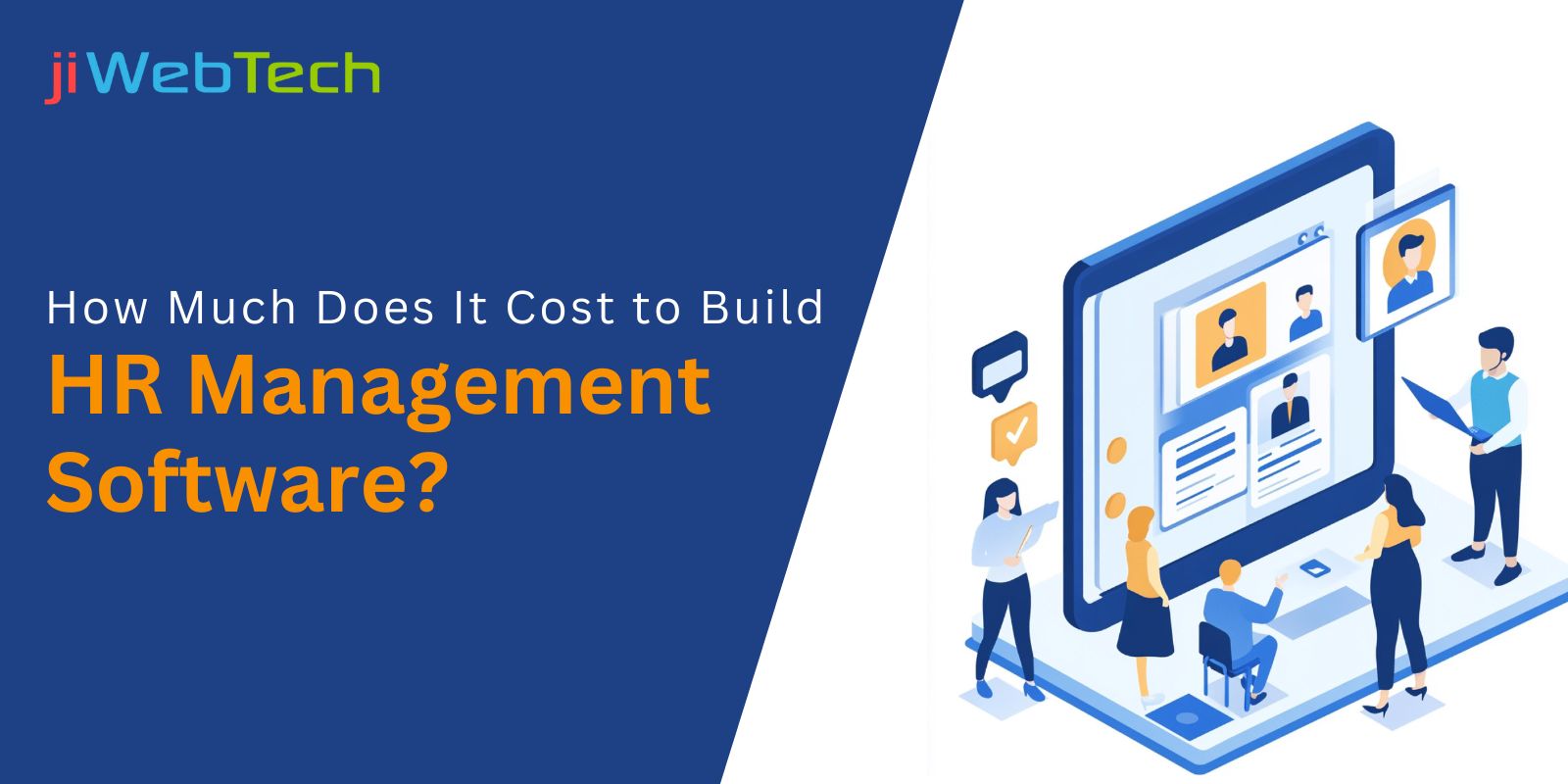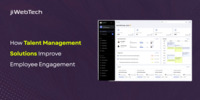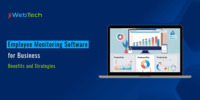- Oct 09, 2024
- Talent Management
- 3489
Share this post on:

In today's fast-paced business environment, having an efficient HR management system is crucial for streamlining employee-related processes and fostering a positive work culture. As companies strive to stay competitive, many are considering building their own customized HR software to cater to their specific needs.
However, the cost of developing HR management software can vary significantly based on several factors. In this blog post, we'll explore the various aspects that influence the cost of building HR management software and provide a comprehensive estimate to help you plan your project effectively.
Estimated Costs for Common HR Software Modules
Here is a cost breakdown of common HR software modules:
1. Recruitment Module:
◦ Approximately $25,920 to $28,800 to develop.
◦ Includes features like creating jobs, posting to job websites, scheduling interviews, and assessing candidates.
2. Onboarding Module:
◦ Costs around $22,680 to $25,200 to develop.
◦ Allows creating and editing onboarding tasks, assigning tasks to employees, and tracking progress.
3. Performance Tracking Module:
◦ Estimated at $11,660 to $12,960 to develop.
◦ Includes goal tracking, performance feedback, and generating reports.
4. Benefits Management Module:
◦ Around $11,660 to $12,960 to develop.
◦ Enables adding benefit plans, sharing with employees, and generating reports.
5. Training Module:
◦ Costs about $12,960 to $14,400 to develop.
◦ Provides lists of trainings, scheduling, tracking progress, and document management.
6. Payroll Module:
◦ Approximately $23,320 to $25,920 to develop.
◦ Includes payroll tracking, request management, work hour tracking, and generating reports.
Factors Influencing the Cost of Building HR Management Software
Here are a few factors influencing the cost of building HR management software:
1. Scope and Features:
Basic HR Software: Typically ranges from $10,000 to $50,000. This includes core functionalities such as employee data management, attendance tracking, and basic reporting capabilities.
Comprehensive Solutions: For more advanced features like performance management, recruitment, training, and analytics, costs can escalate to between $50,000 and $100,000 or more.
2. Customization:
Customizing the software to align with your organization's specific processes and requirements can increase development costs.
Off-the-shelf solutions might be more cost-effective initially but may not fully satisfy your unique requirements.
3. Development Method:
Off-the-Shelf Solutions: These can range from $3,000 to $100,000, depending on features and licensing models.
Custom-Built Solutions: On average, the development of a custom HR software solution can range from $25,000 to $100,000 or more, depending on the complexity and scope of the project.
SaaS Models: Subscription-based HR software can cost from $3 to $3500+ per employee per month, making it a flexible option for many businesses.
4. Technology Stack:
The choice of technologies and platforms can affect development costs.
Web-based HR software typically incurs lower development costs compared to mobile or cross-platform solutions.
5. Design and User Experience:
Investing in quality UI/UX design can improve usability but may add 10% to 30% to the total cost.
An intuitive and user-friendly interface is essential for HR software.
6. Integration Needs:
If the software requires integration with other systems (like payroll or time tracking), this can add another 10% to 30% to the cost.
The complexity of the integration can impact the overall cost.
7. Testing and Quality Assurance:
Quality assurance processes are crucial and can account for 10% to 20% of the development cost.
Rigorous testing is essential to ensure the software's reliability and security.
8. Maintenance and Support:
Ongoing maintenance can cost 15% to 25% of the initial development cost annually.
The level of support required can influence the maintenance costs.
Benefits of Building HR Management Software
In the modern workplace, effective human resource management is essential for business success. As organizations grow and evolve, the complexity of managing human resources increases, necessitating the use of specialized software. Building custom HR management software offers numerous advantages that can significantly enhance HR operations and overall organizational efficiency. This blog will explore the key benefits of developing HR management software tailored to your organization's unique needs.
1. Increased Efficiency and Time Savings
One of the most significant benefits of HR management software is the automation of time-consuming tasks. Traditional HR processes often involve manual data entry, payroll processing, and leave tracking, which can be labor-intensive and prone to errors. By automating these tasks, HR professionals can focus on strategic initiatives rather than administrative duties.
For example, automated payroll systems can calculate salaries, tax deductions, and generate pay stubs with accuracy, significantly reducing the time spent on payroll processing. This efficiency not only saves time but also allows HR teams to allocate resources to more value-added activities, such as employee engagement and talent development.
2. Enhanced Accuracy and Reduced Errors
Manual processes are susceptible to human errors, which can lead to compliance issues, incorrect payroll calculations, and inaccurate employee records. HR management software minimizes these risks by automating calculations and data entry.
With a centralized system, organizations can maintain accurate records of employee information, performance metrics, and compliance-related data. This accuracy is crucial for regulatory compliance and helps prevent costly mistakes that could arise from mismanagement of employee data.
3. Centralized Data Management
HR management software provides a single platform for managing and storing employee data, records, and documents. This centralized repository eliminates duplicate entries and ensures data consistency across the organization.
Having all employee information in one place simplifies access for HR professionals and managers, enabling them to make informed decisions quickly. It also enhances collaboration among different departments by providing a unified view of employee data.
4. Empowering Employee Self-Service
Modern HR management software often includes self-service portals that empower employees to access and update their information. This feature promotes transparency and accountability, as employees can view pay statements, submit leave requests, and enroll in benefits without needing HR intervention.
By enabling self-service options, HR teams can reduce their administrative workload, allowing them to focus on more strategic tasks. Additionally, employees appreciate the autonomy and convenience of managing their information, which can lead to higher job satisfaction and engagement.
5. Streamlined Recruitment and Onboarding
Recruitment and onboarding are critical processes in HR management that can be greatly enhanced through software solutions. Custom HR management software can streamline job postings, applicant tracking, and onboarding processes, improving the overall candidate experience.
With features such as automated job postings to multiple platforms and digital onboarding checklists, organizations can reduce the time it takes to fill positions and integrate new hires. This efficiency not only enhances the candidate experience but also ensures that new employees are well-prepared and informed from day one.
6. Improved Performance Management
HR management software facilitates continuous feedback and performance tracking, allowing organizations to monitor employee performance effectively. Features such as 360-degree feedback, performance appraisal cycles, and goal-setting tools promote a culture of growth and development.
By leveraging data analytics, HR teams can identify trends and areas for improvement, enabling them to implement targeted training and development programs. This proactive approach to performance management can lead to increased employee engagement and retention.
7. Enhanced Compliance and Reporting
Navigating regulatory and legal requirements can be challenging for HR departments. Custom HR management software helps organizations stay compliant by automating processes such as tracking vacation entitlements, managing overtime, and generating reports.
With built-in compliance features, organizations can ensure they adhere to labor laws and regulations, reducing the risk of penalties and legal issues. Additionally, the ability to generate detailed reports provides valuable insights into HR metrics, helping organizations make data-driven decisions.
8. Cost-Effectiveness
While the initial investment in developing custom HR management software may seem high, the long-term cost savings can be substantial. By automating processes and reducing the need for manual intervention, organizations can lower operational costs and improve productivity.
Moreover, the efficiency gained through automation can lead to better resource allocation, allowing HR teams to focus on strategic initiatives that drive business growth. Over time, the return on investment (ROI) from custom HR software can far exceed the initial development costs.
9. Scalability and Flexibility
As businesses grow, their HR needs evolve. Custom HR management software can be designed with scalability in mind, allowing organizations to add new features and functionalities as needed. This flexibility ensures that the software can adapt to changing business requirements without the need for a complete overhaul.
Whether it's adding new modules for performance management, training, or benefits administration, custom software can grow alongside the organization, providing ongoing value and support.
10. Enhanced Security and Data Protection
In an era where data breaches are increasingly common, protecting sensitive employee information is paramount. Custom HR management software can be designed with robust security features to safeguard employee data from unauthorized access and cyber threats.
Cloud-based HR solutions often provide enhanced security measures, such as encryption and regular backups, ensuring that employee information is secure and compliant with data protection regulations. This level of security not only protects the organization but also builds trust with employees, knowing their data is handled responsibly.
Conclusion
The cost of building HR management software can range widely based on specific needs and features. A basic system might start around $50,000, while a fully customized solution with extensive features could exceed $500,000. For precise estimates tailored to your project, consulting with a software development firm is advisable.
When planning your HR software development project, consider factors such as the desired features, customization requirements, development approach, technology stack, design, integration needs, testing, and ongoing maintenance. By carefully evaluating these aspects, you can make an informed decision and allocate resources effectively to build a robust HR management system that meets your organization's unique needs. If you are looking for a software solution company that can help you build HR management software, look no further than jiWebTech. We have helped numerous businesses with our software solutions grow to the next level.









